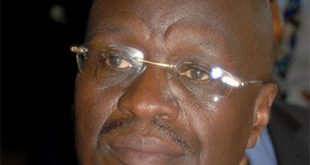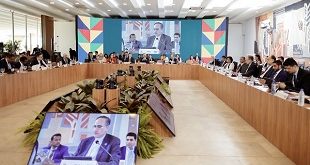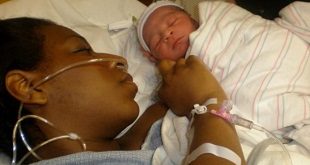
By Andrew M. Mwenda
The only difference between our politicians is one of power, not policy; eating, not serving
Last week, the Forum for Democratic Change (FDC) held a meeting to discuss whether its members of the 8th Parliament who took the Shs20m “bribe” from President Yoweri Museveni to pass the Traditional Leaders’ Bill should return the money. Not surprisingly, the meeting ended without a resolution.
It will be difficult for FDC to decide that all its members return the money because many of those who will sit in its decision-making forum will be the Members of Parliament who took it.

But most critically, FDC leader Dr. Kizza Besigye should by now be learning that there is one thing that unites all politicians in Uganda – both of the ruling party and the opposition – money. Our politicians in government and in the opposition can quarrel bitterly and disagree even violently on nearly every issue under the sun. However, they will always cohere once money is thrown at them. For example, beginning in the 1990s, it was clear that all MPs, regardless of their political affiliation, always united when they began discussing their pay. They all always want an increment.
During the first meeting of the 9th parliament, MPs decided to increase their wages from Shs11m to Shs20m claiming they wanted to adjust them to inflation. During the debate only one opposition MP opposed this proposal and walked out, Ibrahim Ssemuju. The MPs justified their pay hike as a measure to bring their income in line with inflation. Though inflation was 15%, their wages went up 60%.
Meanwhile, both opposition and ruling party MPs said a lot about inflation but did little or nothing in parliament to help the common man – their constituent – adjust to it. It was therefore clear that even when elected, politicians possess interests that may be different from or even at conflict with the interests of their constituents. In Uganda’s case, the MPs are a constituency of their own, often representing their own group interests in the name of the people. It seems the interests of the ordinary person are rarely represented in our many democratic platforms. The lesson is that the only difference between our politicians is one of power, not policy; eating, not serving.
Many critics claim that our parliament is weak and is only used to rubber-stamp Museveni’s decisions. Yet it seems it has grown stronger. For instance, in the late 1980s and 90s, Museveni’s hand was stronger in parliament than today. Whenever he wanted to pass some important legislation, he would don his military fatigues, call a closed session of the NRC (parliament of the time) and literally bulldoze legislators to pass it. Not anymore. Today, he can only get his way by buying the support of MPs. The point is that our parliament is weak in its pursuit of a national objective not strong in the negotiating power of MPs for money and other privileges.
In every successive election since 1996, the number of MPs committed to the public good has reduced; that of those seeking personal material advancement has increased. Today we have a parliament composed largely (certainly not entirely) of self seekers. Thus, although their negotiating power has increased vis a vis the executive, it serves the individual interests of MPs rather than the collective interest of the Ugandan citizens.
That is how Museveni paid every MP Shs20m to pass the Traditional Leaders Bill through a hostile parliament. It was the only way he could get his way. Many Ugandans shout loudly that this undermines democracy. Yet actually, that is exactly how democracy works. In America, presidents or leaders of Congress give individual legislators what are called “earmarks”: allocation of money to pet projects of a given congressman/woman or senator in order to secure their vote.
The difference between how America and Uganda does it lies in form, not in substance. In America, the money is not sent directly to a legislator’s personal bank account as was done in Uganda. It is sent institutionally to their district (constituency) or state to fund a particular project there. So the legislator cannot easily (note, easily) put it into his/her own pocket. Soon, the NRM may learn this lesson. Bribery has for long been employed as an instrument of every democracy from ancient Greece and Rome to modern day Western Europe and North America. Uganda is following suit.
The FDC has been trying to find its own moral feet in Uganda’s murky waters of political corruption and now faces a tough choice. If the party holds a tough line on returning the Shs20m, it may suffer the risk of open defiance by most (should I even say 80%?) of its MPs. And it has very few MPs in the house. If such a large majority defy the party resolution, they will render it redundant. Then to keep face, FDC would be forced to discipline them; and it can only do so by throwing them out of the party. But this means they would have to resign their seats.
Strategically, it would be suicidal for FDC to take such principled action. If the party’s seats are opened up for fresh contest, it is very likely that FDC will lose nearly all of them to either the incumbents it has expelled or to the NRM. Therefore if the MPs who took the Shs20m refuse to refund it, the best option for FDC is to leave them alone. This is the only way it can retain its presence in parliament and therefore remain relevant politically.
FDC can only sustain its moral high ground only at the risk of losing even the few MPs it has. Without a presence in parliament, it would have no political bite. Alternatively it can seek to retain its political bite in parliament but at the price of sinking into NRM’s moral depravity of corruption – the very evil it is sworn to fight. The way Museveni has structured his political patronage machine and the corruption that sustains it leaves the opposition in Uganda in a quandary. The choice for FDC is tough: maintain high moral standards at the price of political irrelevance or retain political clout at the price of looking like NRM.
amwenda@independent.co.ug
 The Independent Uganda: You get the Truth we Pay the Price
The Independent Uganda: You get the Truth we Pay the Price



